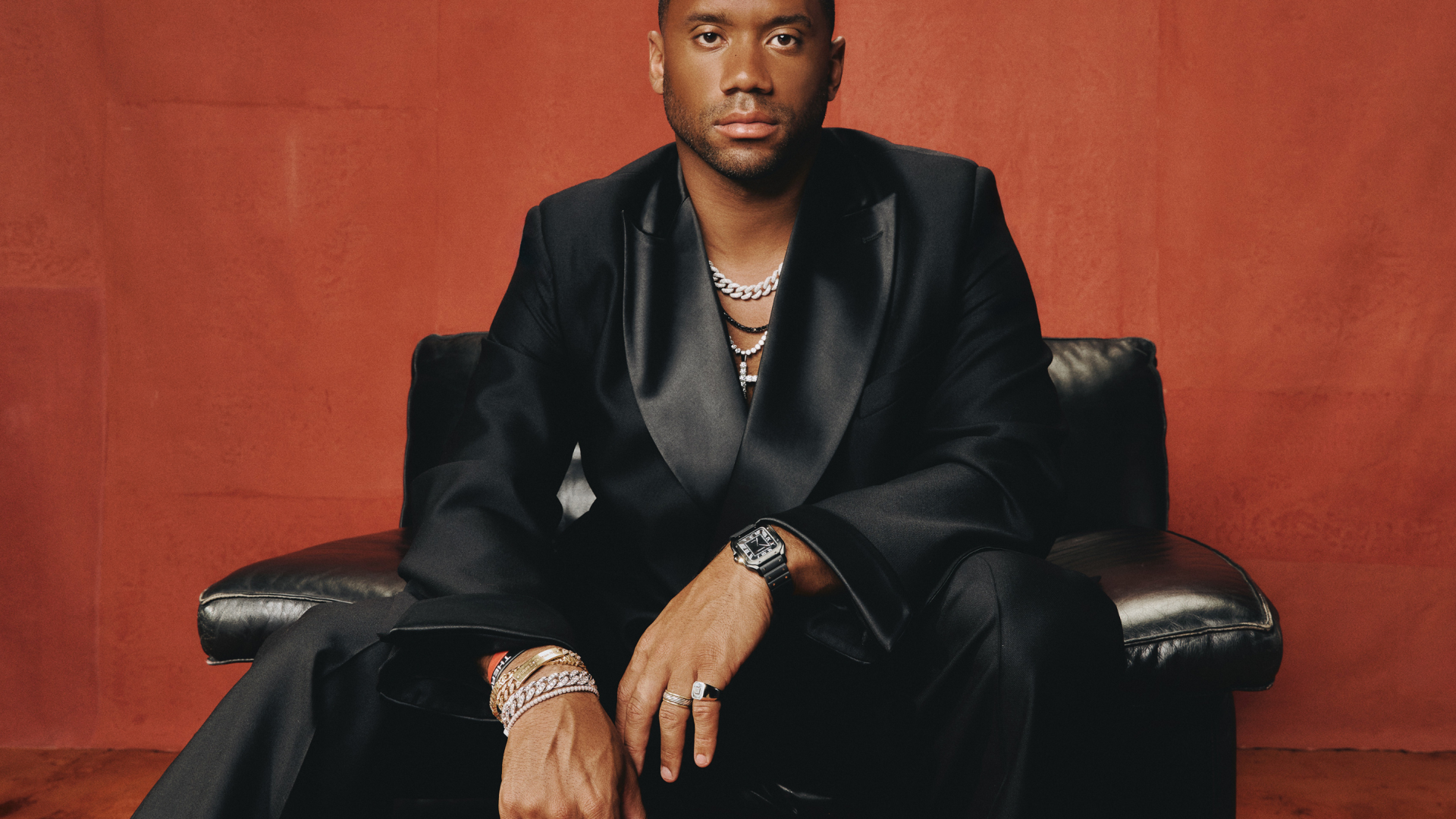
This story was featured in the May/June issue of ESSENCE.
Throughout his storied tenure in the NFL, Russell Wilson has achieved unimaginable success on the gridiron. With a dynamic skill set and unique leadership qualities, he has established himself as a preeminent figure not only in football but also in entrepreneurship, philanthropy and entertainment. By refusing to let conventional restrictions box him in, Wilson has helped to break the mold of what the modern sports star can be. In the process, he’s blazed a new trail for Black athletes for generations to come.
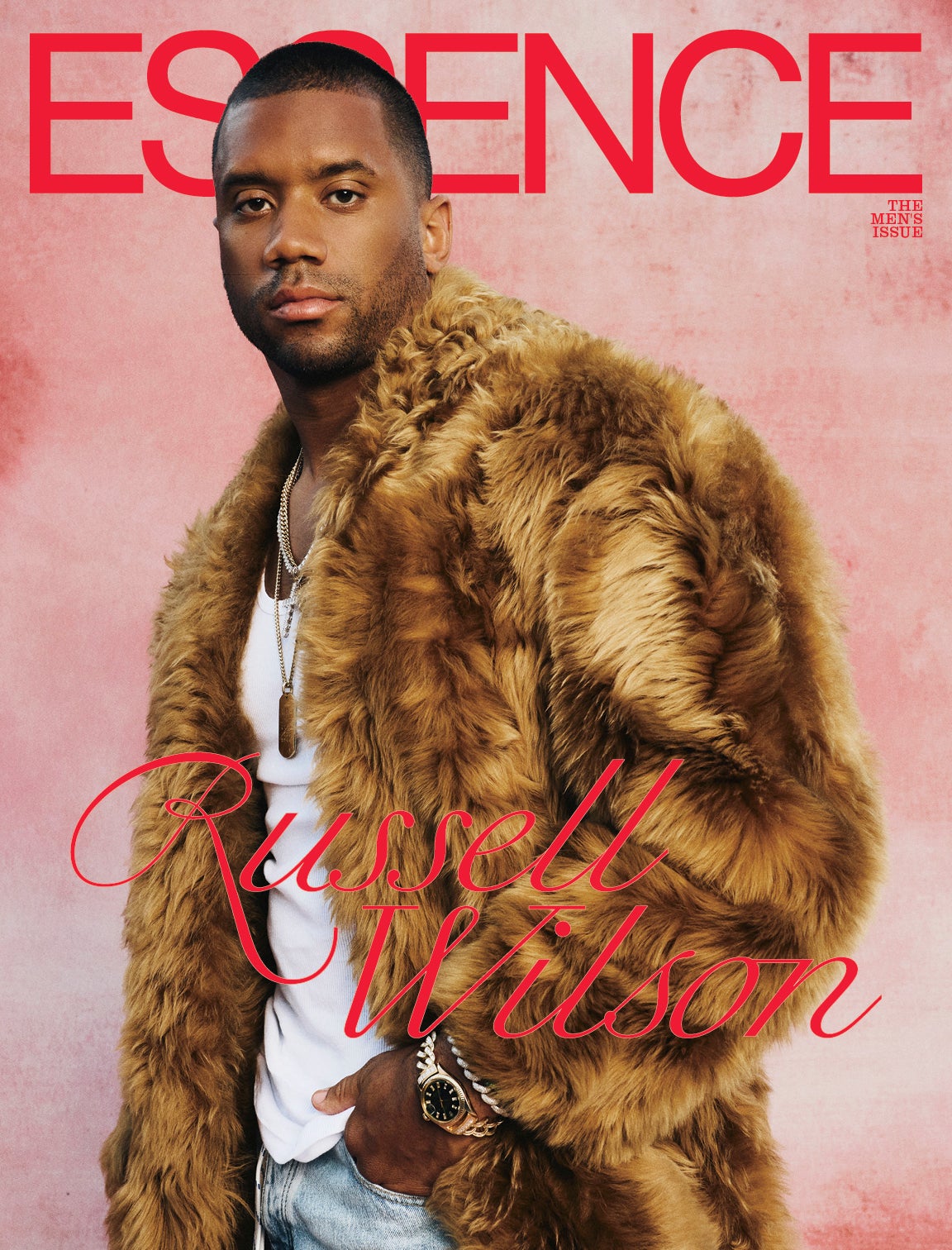
Born in Cincinnati and raised in Richmond, Wilson was an active child, playing basketball, football and baseball. “I’ve loved sports my whole life,” the 35-year-old says. “The love came from my dad and my brother, and from playing against them.” He excelled in high school athletics and was drafted by the Baltimore Orioles professional baseball team—but decided to further his education by enrolling for college at North Carolina State University. There, he excelled in football and baseball before transferring to the University of Wisconsin-Madison. With his talent, Wilson had options when it came to sports, but it was guidance from a higher power that inspired him to focus on football.
“I think the decision was just God’s perfect timing for me,” Wilson explains. In focusing solely on football, he was able to sharpen his prowess as a passer, which led him to a stellar senior year at Wisconsin. He drove the Badgers to a record of 11-3 and a Big 10 Championship. In 2012, he declared for the NFL Draft, ultimately going to the Seattle Seahawks as a third-round pick. Although Wilson showed promise while playing Division I athletics, it was in the following years that the world would fully recognize the vastness of his potential.
During his career with the Seahawks, Wilson earned nine Pro Bowl selections, had several record-breaking seasons and achieved a victory in Super Bowl XLVIII. In 2019, he dazzled audiences with a series of game-breaking passes and an uncanny ability to improvise outside of the pocket—compelling the public to create the phrase “Let Russ cook.” In the decade he spent behind center in Seattle, Wilson emerged as one of the best players in football. More importantly, his ascendancy served as a reminder that Black quarterbacks possess more than physical attributes, countering a narrative that has been pushed by scouts, coaches, executives and media since the league’s inception over a century ago.
Before Wilson burst onto the scene, signal callers of color like Doug Williams, Warren Moon, Randall Cunningham and Michael Vick all dominated the field at one point—a fact that Wilson recognizes and respects. “I think about those guys before me,” he says. “But when I came into the league, there were only a few of us. It was Cam Newton, Robert Griffin III, Colin Kaepernick, myself and a couple others.” By the end of his second year in the NFL, Wilson held up the Lombardi Trophy, becoming just the second Black quarterback to do so. While the win became an unforgettable personal accomplishment, it also marked a shift in the perception of Black men in his position.
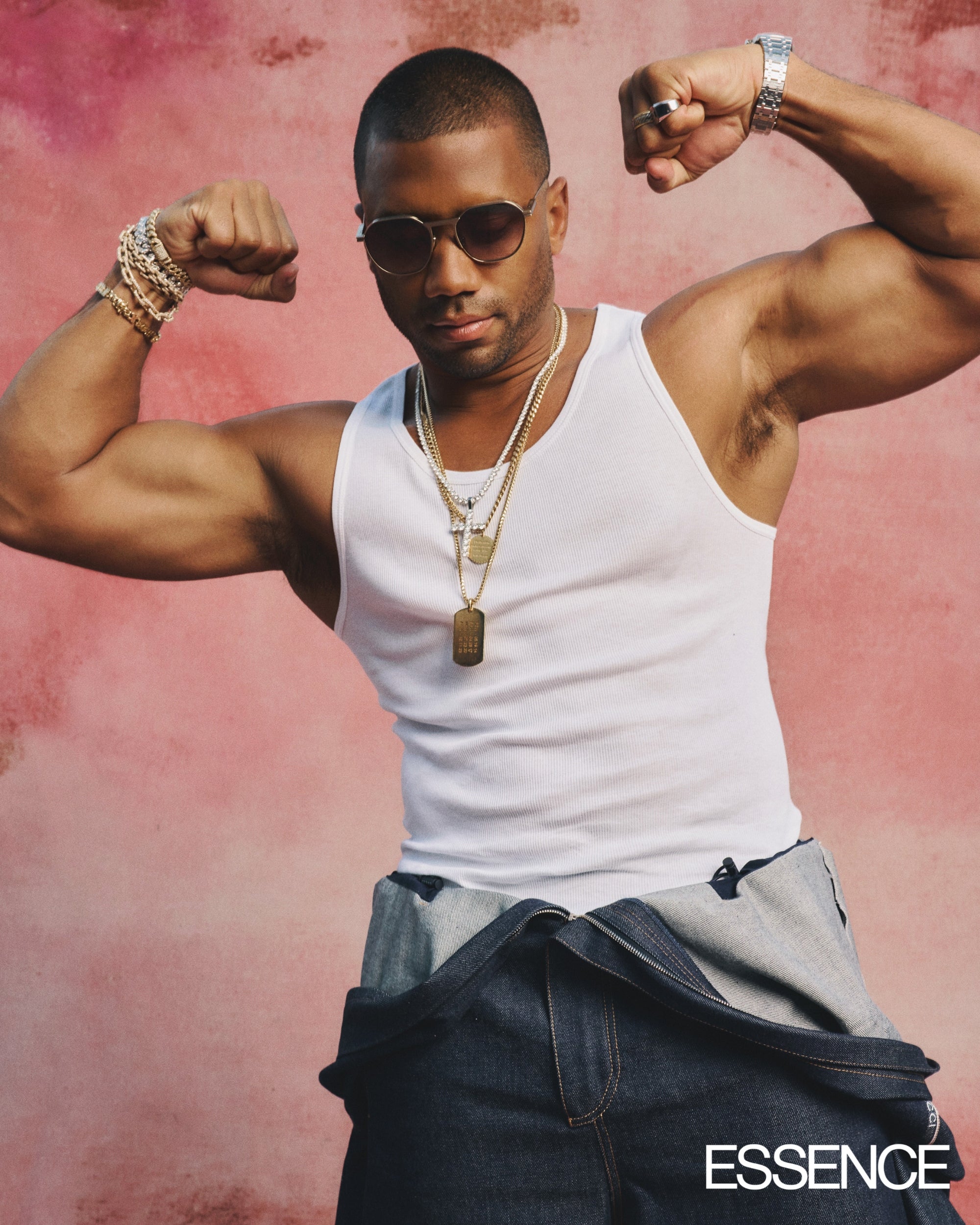
“For me to be able to go to back-to-back Super Bowls, and win one of them, I think opened up a lot of doors,” he says. “Now you see guys like Patrick Mahomes who won it; it’s really just us so far, but there’s more to come.” The emergence of quarterbacks like Mahomes, Jalen Hurts, Lamar Jackson and C.J. Stroud, to name a few, is indicative of a new era in football and a glimpse into what the sport is trending toward.
“What I love to see is guys getting drafted early, and that a lot of teams these days have Black quarterbacks playing for them,” Wilson says. “It’s all across the league, and it’s showing how the National Football League is starting to evolve, change and break down barriers. I think one of the biggest blessings of my career so far is that I’ve been fortunate to be able to open up doors for others, because of what others did for me.”
This offseason, the future Hall of Famer signed with the Pittsburgh Steelers, following a brief, complicated stint with the Denver Broncos, to play under Mike Tomlin, the team’s trailblazing Black coach. In what marks a new beginning for Wilson’s life and career, he remains steadfast for the journey ahead, and thankful for all he’s attained thus far. “To play 13 years in the NFL has been a dream come true,” he says, adding that “to be able to play for Mike Tomlin; to stand side by side with him and try to accomplish all the goals that I want to accomplish with the Steelers organization, and what that represents for the NFL, is one of the greatest gifts in the world.”
In addition to his brilliance on the field, Wilson has been a genuine star off of it. Through his philanthropic efforts and community service, he is improving quality of life for the less fortunate and the disenfranchised. His unwavering commitment is something that was instilled in him early, by his parents. “My mom and my dad, I got to see them both give back in many ways,” he recalls. “My dad was a lawyer. He helped so many people. My mom was a nurse, and she had the heart of servitude, like in John 13:14—where Jesus says, ‘If I, your Lord and teacher, wash your feet, you ought to wash others.’ And I just firmly believe that it’s God’s gift—‘To whom much is given, much is required’—for us to be able to give back and serve.”
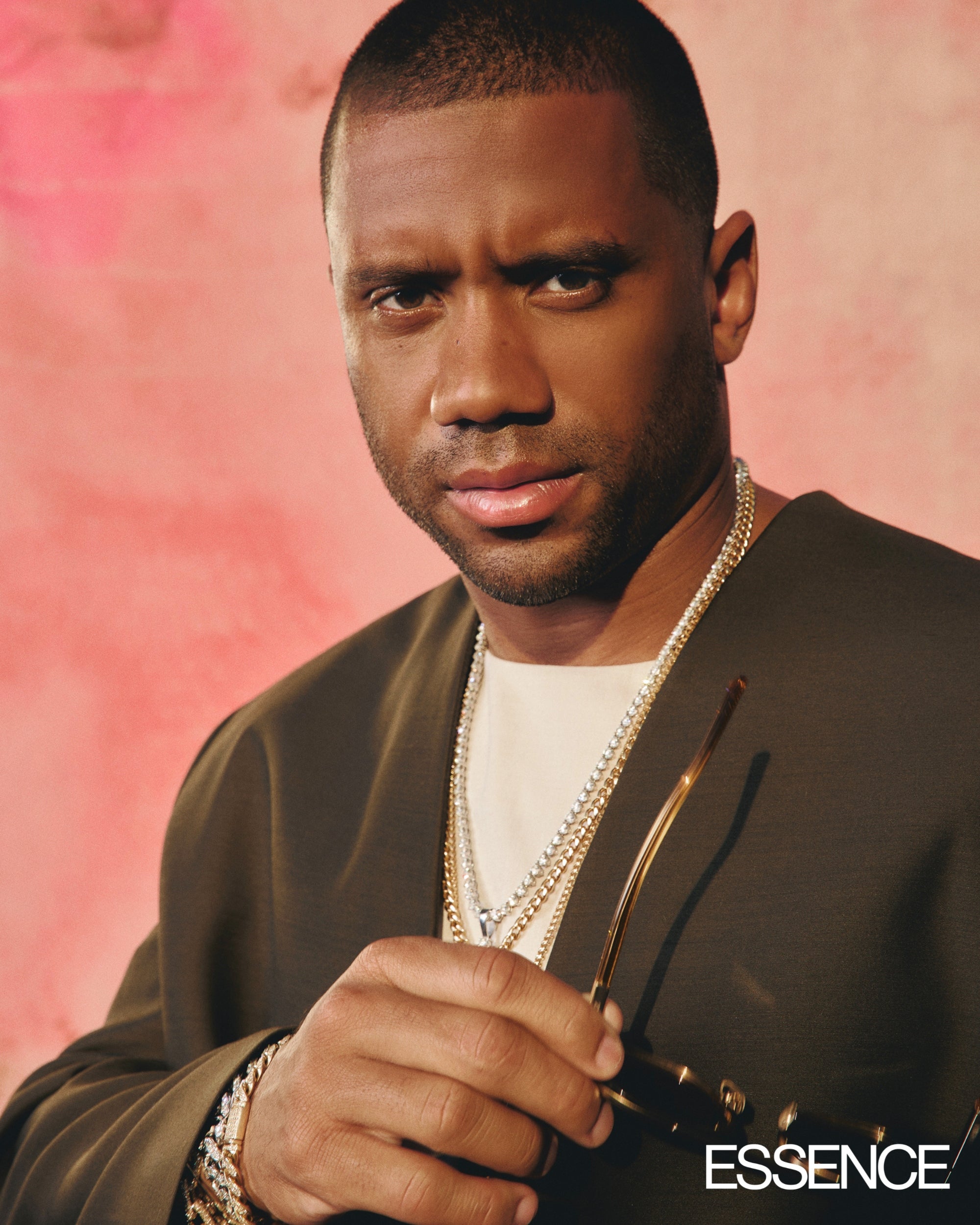
Following his father’s passing in 2010, Wilson established the Why Not You Foundation, a nonprofit organization that aims to empower today’s youth, and his efforts have garnered him philanthropic honors, including Walter Payton NFL Man of the Year in 2021, and the Bart Starr Award in 2022. His humanitarian spirit extends to his companies, including the men’s-apparel and footwear line Good Man Brand, his business-coaching firm Limitless Minds, the Russell Wilson Quarterback Academy and many more. Wilson also formed Why Not You Productions with his wife, Grammy Award-winning singer Ciara, in hopes of creating stories that will uplift and entertain viewers.
As ambitious as Wilson has been, family is the pillar in everything he does. His relationship with Ciara, to whom he’s been married since 2016, is an inspiration to those who celebrate Black love. The key to their success, he says, is prayer. “When I asked her to marry me, once she said yes, I said, ‘Before we go do this, can we pray? I want to make sure we always put God at the center of it all,’” he recalls. “And so I think the thing that hopefully exudes from our love is that, listen, love is never perfect. But we continue to try to put God first and pray over each other. We have these four beautiful children that we get to raise every day and it’s the greatest gift in the world.”
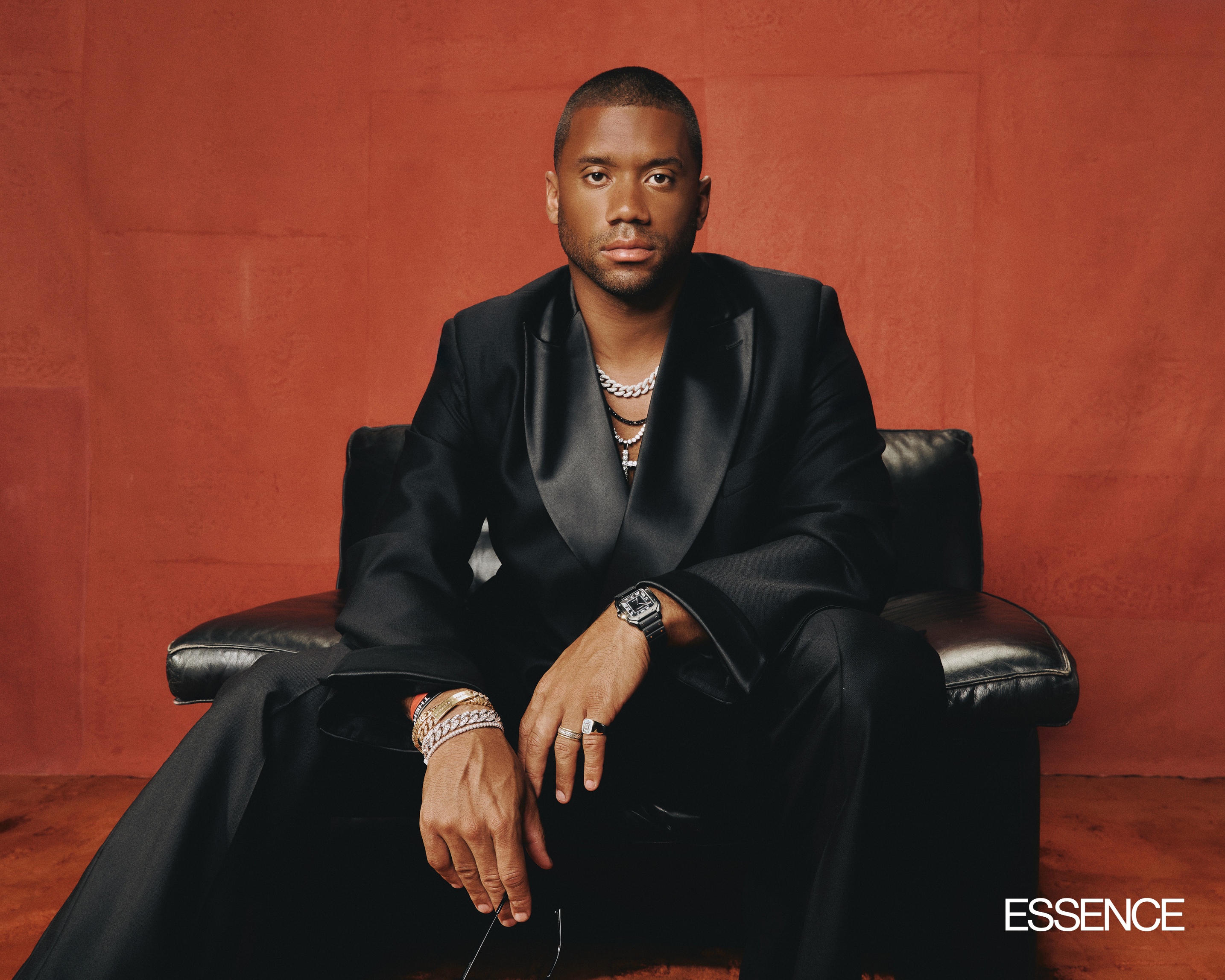
Wilson’s faith has been his foundation, seeing him through victories, trials and everything in between. It has allowed him to be the man he is, and also aspire to be better with each passing day.
“I think it keeps you grounded,” he says of his belief system. “It keeps you connected to who God is, and what He’s already done, and what He’s about to do for you. It’s knowing there’s always a bigger purpose in life. That’s really important. It inspires me to be the best version of me, so I can inspire somebody else.”
Credits
Photographed by: Adrienne Raquel
Styled by: Jan-Michael Quammie
Photo Production Credits: Grooming: Pircilla Pae using Papatui at A-Frame Agency
Nails: Temeka Jackson using The GelBottle at A-Frame Agency
Set Design: Bette Adams at MHS Artists
Lighting Director: Sebastian Johnson
Photography Assistant: Lance Williams
Digitech: Renee Wai Yee Dodge
Retouching: picturehouse + thesmalldarkroom
Market Editor: Aidan Palermo
Stylist Assistant: Andrew Mcfarland and Laura Cheron Haquette
Tailors: Ivy Idzakovich and Macy Idzakovich
Production Manager: Alaura Wong
Production Assistant: Cecilia Alvarez Blackwell
Location: NYA Studios
Special Thanks: L’Ermitage Beverly Hills & Short Stories Hotel